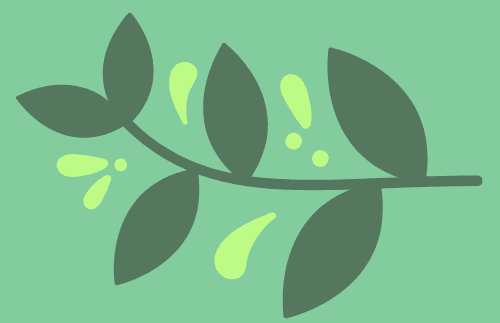Last updated on October 23rd, 2023 at 08:49 pm
Aphid infestations are annoying. These small mites attack all plants. Because of this infestation, the plant weakens (thus becoming more susceptible to diseases), deforms, dries out and loses its leaves. In short, it’s everything the gardener dreads in his garden or vegetable garden! So, if you can’t stand to see aphids lurking around your plants and under their leaves in search of sap, act fast! There are several natural and ecological techniques to get rid of them without having to resort to insecticides based on traditional chemicals that poison the soil and the planet. The proof is in 8 tricks that are effective against these parasites that are harmful to your plants!
Contents
1) Liquid black soap: the best method against aphids on plants!

It is not very effective only for cleaning the house and taking care of your body! It also has a paralyzing effect on aphids that end up starving to death. To use it, just mix two teaspoons with a liter of water and pour it into a spray bottle and shake it hard so it foams up. Spray this on the plants to be treated and let it dry. The next day, rinse the leaves thoroughly. For two weeks, repeat this every two or three days.
Another good option is organic liquid soap! Use 20 ml of organic liquid soap or dishwashing liquid for one liter of water. Add 20 ml of rubbing alcohol to the mixture. Shake and spray to eradicate those little bugs that get too close to your beloved vegetable plants for your taste!
2) Like vampires, use garlic!

If your rose bush is a target for aphids, you’d benefit from planting garlic plants next to it! Alternatively, you can treat rose bushes with a solution similar to the one presented above except that you’ll add two cloves of garlic to a liter of water and 100 g of black soap. Alternatively, make a small infusion! Bring one liter of water to a boil. Meanwhile, crush 4 cloves of garlic and then pour the water over it. Cover and wait one hour before filtering and spraying cold on the areas to be treated.
3) Coffee grounds

If you like to discover new ways to recycle it, you’ll be happy to know that you can put coffee grounds at the foot of plants, especially rose bushes. You can also put a few coffee beans at the base of the plant, on the ground, to deter aphids from coming near it.
4) Nasturtiums

To protect your plants, distract with other less fragile plants! Because of their love for nasturtiums, aphids should quickly forget about your other plants. It’s quite simple: they will no longer exist for them!
5) White vinegar

Yes… white vinegar again and again! It can effectively chase away aphids if you add a little to your watering water for spraying on the plants. And if you’re in a tough mood, you can let some tobacco macerate in the water overnight before adding the vinegar. The message will then be clear to the little beasts: you’re not giving them any quarter!
6) Chives or nettles against aphids

Finally, for your fruit trees (apple trees, etc.) and shrubs, there is a very simple method: plant a few feet of chives not far from the trunks. The aphids will pass by at full speed! Alternatively, use nettle, another useful plant! Put some in a bucket and sprinkle with water. Finish by covering the whole thing and leaving it out for a week before straining it all out. Add 1/4 water and spray on your plants. They should be gone quickly with this too…
7) Get rid of aphids on roses

All you need is four parts water to one part milk. Mix everything well and pour this preparation into a spray bottle. Spray it on your roses without forgetting the areas under the leaves. For best results, avoid times when it is windy (it will ruin all your efforts!).
8) And of course… baking soda!

Along the same lines as the previous mixture, we keep a measure of 20 ml of organic liquid soap for one liter of water. Then add 20 ml of sweet almond oil or rapeseed oil. Then sprinkle 20 g of baking soda. Mix everything well and spray the product on the infected plants and then rinse it off while watering. This last recipe is excellent against different species that attack your pretty plants (aphids, red spiders…) and also works as a good fungicide.


